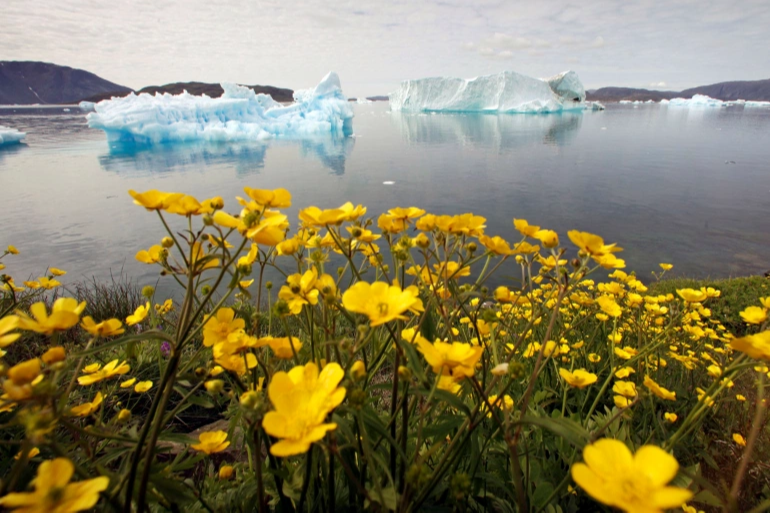
Greenland and Antarctica recently showed all-time low levels of ice mass and glaciers are melting 31- percent faster than they did just 15 years ago, the authors said [File: Bob Strong/Reuters]
United Nations, July 28 (RHC)-- Thousands of scientists have repeated calls for urgent action to tackle the climate emergency, warning that several tipping points are now imminent. They say that the "overexploitation of the Earth" has seen many of its ‘vital signs’ deteriorate to record levels.
The researchers, part of a group of more than 14,000 scientists who have signed on to an initiative declaring a worldwide climate emergency, said in an article published in the journal BioScience on Wednesday that governments had consistently failed to address abuse of the world's natural resources, which they described as the root cause of the crisis.
Since a similar assessment in 2019, they noted an “unprecedented surge” in climate-related disasters, including flooding in South America and Southeast Asia, record-shattering heatwaves and wildfires in Australia and the US, and devastating cyclones in Africa and South Asia.
For the study, scientists relied on “vital signs” to measure the health of the planet, including deforestation, greenhouse gas emissions, glacier thickness and sea-ice extent and deforestation. Out of 31 signs, they found that 18 hit record highs or lows.
For example, despite a dip in pollution linked to the COVID-19 pandemic, levels of atmospheric CO2 and methane hit all-time highs in 2021.
Greenland and Antarctica recently showed all-time low levels of ice mass and glaciers are melting 31-percent faster than they did just 15 years ago, the authors said. Ocean heat and global sea levels set new records since 2019, and the annual loss rate of the Brazilian Amazon reached a 12-year high in 2020.
Echoing previous research, the researchers said forest degradation linked to fire, drought and logging was causing parts of the Brazilian Amazon to now act as a source of carbon, rather than absorb the gas from the atmosphere. Livestock such as cows and sheep are now at record levels, numbering more than four billion and with a mass exceeding that of all humans and wild land mammals combined, they said.
Tim Lenton, the director of the University of Exeter’s Global Systems Institute and study co-author, said the recent record-breaking heat waves in western United States and Canada showed that the climate had already begun to “behave in shocking, unexpected ways”.
“We need to respond to the evidence that we are hitting climate tipping points with equally urgent action to decarbonise the global economy and start restoring instead of destroying nature,” he said.
The researchers said there was “mounting evidence that we are nearing or have already crossed” a number of climate tipping points. These include melting of the Greenland and West Antarctic ice sheets, which may now be irreversible on a centuries-long time scale, regardless of how or if the human race slashes its emissions.
They said increasing ocean deoxygenation and warming waters were threatening warm-water coral reefs, upon which half a billion people rely for food, income and storm protection. “Given these alarming developments, we need short, frequent, and easily accessible updates on the climate emergency,” said the study.

